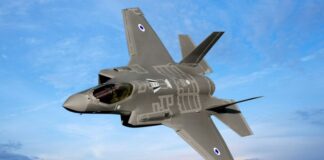Following Abbott’s arrogance over the Indonesian spying scandal, there have been fresh revelations of a disgraceful Australian government spying operation in East Timor. This is part of Australia’s grab for access to the impoverished nation’s oil and gas.
The fiasco has exposed Australia’s ruthless pursuit of its imperialist interests in the region, and its willingness to bully poor neighbouring nations for resources and economic control.
East Timor’s government has taken Australia to the International Court of Justice to dispute the current Timor Sea Treaty, officially known as Certain Maritime Arrangements in the Timor Sea (CMATS). The treaty, signed in 2006, stipulates that East Timor and Australia will “equitably share” the proceeds of the gas and oil located in the Greater Sunrise fields. However there is nothing equitable about it. East Timor only receives 50 per cent of the revenue when the fields are part of the Timor Sea, situated 150 kilometres off East Timor’s coast. They are 450 kilometres northwest of Darwin. Australian oil and gas company Woodside has the rights to their development.
East Timor is challenging the treaty after evidence came to light that Australia bugged East Timor cabinet offices during negotiations in 2004.
In response, the government has tried to intimidate witnesses and prevent them testifying. A former Australia Secret Intelligence Service (ASIS) officer was prepared to testify that the bugging occurred. Under instructions from Liberal Attorney-General, George Brandis, ASIO raided the man’s house and seized his passport to prevent him from travelling out of Australia to testify in early December 2013.
ASIO also raided and seized important documents from the office of Australian lawyer Bernard Collaery, who is representing East Timor.
Australia—neighbour from hell
The Australian government has continually put cold calculations of economic and strategic interests above all else in its dealings with East Timor. Australia supported Indonesian control of East Timor and has long pressed to gain control over its resources.
In 1974, suggesting that Indonesia negotiate with Australia over the Timor Gap, Australian ambassador to Indonesia Richard Woolcott sent a cable stating, “I know I am recommending a pragmatic rather than a principled stand but that is what the national interest and foreign policy is all about.”
Then Labor Prime Minister Gough Whitlam supported Indonesian dictator Suharto’s invasion of East Timor in 1975. He justified it saying, “An independent East Timor would be an unviable state and a potential threat to the area.” Tens of thousands of East Timorese people were killed.
Despite mounting domestic and international pressure, in 1982 Fraser bullied other South Pacific leaders to vote with Indonesia in the UN against moves towards East Timor’s independence.
In 1989, Labor Prime Minister Bob Hawke managed to secure Australian control of the oil and gas resources through a deal with the Indonesian government called the Timor Gap Treaty. Close to 80 per cent of Greater Sunrise’s resources were given to Australia.
Following a long struggle and the fall of Indonesia’s dictator Suharto, East Timor finally gained independence in 2002. This left the previous Gap Treaty invalid. The Liberal government of John Howard was forced to negotiate with the new independent state over the resources.
The negotiations amounted to little more than bullying. Then East Timorese foreign minister José Ramos-Horta stated that Australia’s proposals “amounted to an unacceptable blackmail.”
Facing pressure from Australia and in need of revenue, the East Timorese government signed the current treaty in 2006.
Exposing Australia
Allegations that the Australian government spied on East Timor during these negotiations were first raised a year ago. East Timor’s Prime Minister Xanana Gusmao wrote to then Prime Minister Julia Gillard requesting they reopen negotiations over the treaty, but received no reply.
Since then the Australian government has been internationally embarrassed over reports that Australia spied on Indonesian officials. This scandal has given greater coverage to East Timor’s allegations.
It has also come out that Australian spies gained entry into East Timor as aid workers, raising questions over AusAid’s role in the region.
Protests have been held in the East Timorese capital Dili outside the Australian embassy. A fitting image of a kangaroo carrying buckets of oil dripping with blood was painted on the military compound.
The long history of imperialist dominance and exploitation of East Timor has made it into one of the poorest countries in the world. According to the United Nations, 40 per cent of the population are malnourished and 37.5 per cent live on less than $1.40 per day.
The spying scandal is a chance to expose Australia’s horrendous role—and demand justice for the East Timorese.
By Vivian Honan





